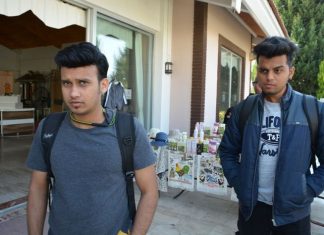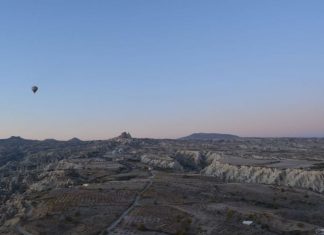Before diving the diver puts on his face a sort of tortoiseshell mask and a tortoiseshell clip on his nose, then he ties a rope round his waist and dives. They differ in their endurance under water, some of them being able to stay under for an hour or two hours [sic] or less. When he reaches the bottom of the sea he finds the shells there stuck in the sand between small stones, and pulls them out by hand or cuts them loose with a knife which he has for the purpose, and puts them in a leather bag slung round his neck.
When his breath becomes restricted he pulls the rope, and the man holding the rope on the shore feels the movement and pulls him up into the boat. The bag is taken from him and the shells are opened. Inside them are found pieces of flesh which are cut out with a knife, and when they come into contact with the air solidify and turn into pearls [sic]. These are then collected large and small together; the sultan takes his fifth and the remainder are bought by the merchants who are there in the boats. Most of them are the creditors of the divers, and they take the pearls in quittance of their debt [i.e., the debt of the divers] or so much of it as is their due.
Ibn Battuta in Jedda.
After the [AD 1332] pilgrimage I went to Judda [Jedda], intending to take ship to Yemen and India, but that plan fell through and I could get no one to join me. I stayed at Judda about forty days. There was a ship there going to Qusayr [Kosair], and I went on board to see what state it was in, but I was not satisfied. This was an act of providence, for the ship sailed and foundered in the open sea, and very few escaped.
Afterwards I took ship for Aydhab, but we were driven to a roadsted called Ra’s Dawa’ir [on the Egyptian coast of the Red Sea], from which we made our way [overland] with some Bejas through the desert to Aydhab. Thence we travelled to Edfu [on the Nile] and down the Nile to Cairo, where I stayed for a few days, then set out for Syria and passed for the second time through Gaza, Hebron, Jerusalem, Ramlah Acre, Tripoli, and Jabala to Ladhiqiya.
In Syria Ibn Battuta boards a Genoese merchant galley for the sea crossing to the southern coast of Anatolia; he then travels overland to the city of Konia








